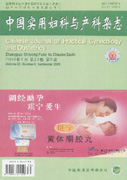Abnormal glucose metabolism is a common complication during pregnancy.The incidence of preeclampsia increased dramatically among pregnant women with abnormal glucose metabolism compared to those with normal glucose metabolism.A multimodal treatment including restriction of weight gain, glucose monitoring and management, blood pressure controlling,using Aspirin for antiplatelet therapy if necessary,could be used to reduce the incidence of preeclampsia among those women.

